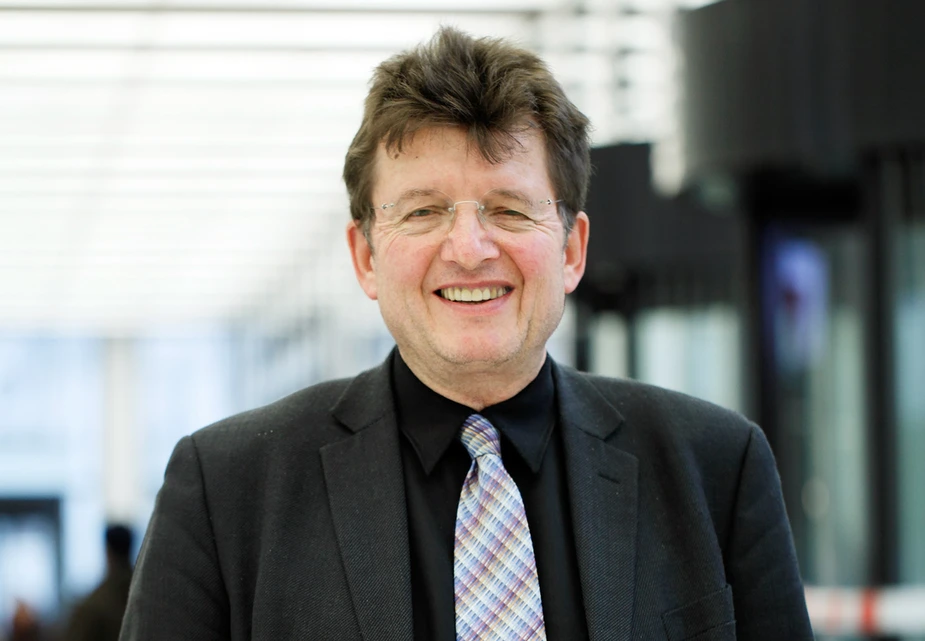Scholarly Bits and Bytes
The library of the Humboldt-Universität in Berlin is sought after more than ever
Librarians are in no way being made obsolete by the digital age. At the Humboldt-Universität zu Berlin, they give tips on efficient online research, digitise old books and support researchers with publishing their studies and data – including audio and video.
The director of a university library must read a lot. Even in the digital age. Where does someone like him stand in the “online or print-out” discussion, we ask. “I prefer reading long articles on paper,” says Prof. Andreas Degkwitz, who runs the library at the Humboldt-Universität zu Berlin (HU). Annotating a text is something the classical philologist also prefers not to do digitally.
Degkwitz uses the screen mainly for reading something quickly. The computer has changed libraries significantly. It has become more important to store the available scholarly literature efficiently and to facilitate finding and accessing it. Users of the HU library enter its digital realm using the search engine “Primus”. “With ‘Primus’, one can even search on the level of individual articles,” says Degkwitz.
Many are using this opportunity. Doctoral theses and other publications like conference proceedings are retrievable from the HU library’s “edoc server”. Old books from the 18th, 19th and early 20th century are gradually being digitised. This is planned, for example, for the Brothers Grimm’s private library, which comprises almost 6,000 volumes, and for the literary estate of a luminary like Robert Koch. “This is highly relevant for research projects with a historical focus,” says Degkwitz. However, up to now only a fraction of the paper volumes have been digitised.
Generally, historical documents are less relevant for natural scientists. They focus on state-of-the-art academic literature which is mostly online. This doesn’t keep researchers and many people working for nearby companies from visiting the HU’s natural science library, which is located at the Erwin-Schrödinger-Centre on Campus Adlershof and offers 430 study places. Between 500 and 1,500 people visit the library every day, most of which are students. “Most students go there to be able to work in peace or to meet up,” the director tells us. Such places are now rare in the institutes themselves. Students also value free access to more than 300,000 e-books – a format that is increasingly gaining acceptance.
Librarians, says Degkwitz, now help to support the work of researchers, which might include helping them to publish or store research data. How do I collect metadata – the data describing my data? How do I obtain a “digital object identifier”, or DOI, for my research data. These are just some of the issues. So-called “enhanced publications” can now include comments, but also audio and video. An ornithologist, for example, might enhance an article about a certain type of a bird with the matching recordings. Librarians are turning into advisors and facilitators of publishing research results. This means, says Degkwitz, that they need to know more about the specific demands of individual disciplines than they used to. The branch library at the Erwin Schrödinger-Centre is home to chemistry, physics, geography, mathematics, computer science and psychology.
The closed stacks are also in Adlershof. It houses a part of the six million volumes of the HU library and the university archive. One essential task is archiving the digital stacks. According to Degkwitz, this might even be one of the greatest challenges. The way the files are formatted and stored must enable long-term and flexible use. Access to tools for further processing is also a requirement. “Our task is to continue a tradition of long-term use of resources largely based on printed publications for digital publications,” says Degkwitz.
By Sven Titz for Adlershof Journal
